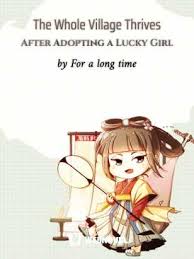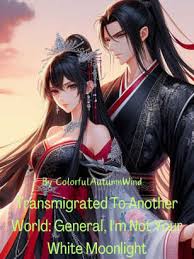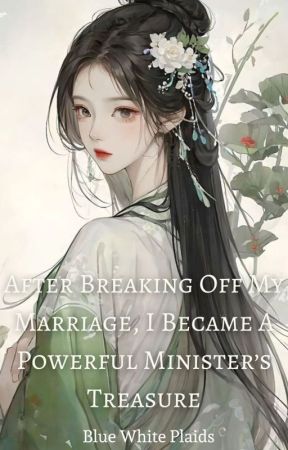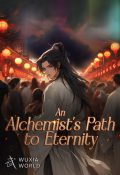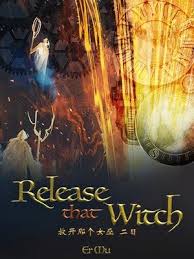The Story in 3 Sentences
A destitute farmer, Jiang Sanlang, discovers an abandoned newborn on a hillside and, defying fate, chooses to raise her as his own, an act of pure kindness that cracks open the door to impossible fortune.
His barren wife, Xu Chunniang, miraculously conceives twins, and their humble home transforms into a beacon of prosperity, radiating wealth and good luck that soon envelops their entire envious village.
The girl, Yingbao, aware she is a discarded character from a cruel story, uses her second chance to fiercely protect her newfound family and rewrite their destiny, turning away from the original plot’s drama towards a life of abundance and communal triumph.
Why It Stands Out
1. The Unlikeliest Blessing Engine
The story’s genius lies in making its catalyst for universal prosperity not a warrior or a sage, but a silent, adopted infant whose very existence rewrites the rules of fate for an entire community. Yingbao’s presence is a quiet revolution, proving that the most profound magic often blooms from the simplest acts of compassion, turning a single family’s hearth into a furnace that forges wealth for all. Her tiny hand waving villagers towards planting “gold and Xue’er” becomes the most potent spell, a promise of collective upliftment that feels both fantastical and deeply human.
2. Prosperity as a Communal Love Letter
It stands out by rejecting the zero-sum game of most xianxia tales, where one’s gain is another’s loss. Here, Yingbao’s “golden finger” isn’t hoarded; it’s shared, deliberately and joyfully, transforming the village from a collection of struggling individuals into a thriving, interconnected organism. The narrative celebrates the mundane miracles of farming, trade, and neighborly cooperation, making the journey from rags to riches feel earned and communal, a testament to collective effort sparked by one child’s good fortune.
3. Rebirth With a Vengeance (Against the Plot)
What truly sets it apart is its meta-awareness. Yingbao isn’t just reborn; she’s reborn with the bitter knowledge of being a narrative pawn. Her entire arc is a beautiful act of rebellion, not against a dark lord, but against the predetermined, often cruel, storyline itself. She actively avoids the “female protagonist and supporting characters,” choosing instead to build a peaceful, prosperous life for her adoptive family, making her quiet determination to live a “good life” the most compelling and subversive quest of all.
Characters That Leave a Mark
There’s Xu Chunniang – the once-barren wife whose life is irrevocably changed by her husband’s compassion, becoming the nurturing heart of a family blessed with unexpected twins and boundless love.
You’ll meet Chen Tiantian, who emerges as the shadow from Yingbao’s past, representing the cruel, abandoning family whose belated claim on the child ignites the village’s protective fury.
And Chen Zhao? They’re the one who dares to come looking for Yingbao, embodying the shameless entitlement of those who discarded her and now seek to steal back the fortune her presence created for others.
The Flaws Fans Debate
Some readers find the plot’s internal logic occasionally strained, noting that the sheer scale of the good fortune and its mechanics can feel like convenient narrative devices rather than fully explored systems.
The pacing is criticized by a segment of the audience for sometimes slowing to a crawl, particularly when the narrative delves into detailed descriptions of farming techniques or village politics that momentarily halt the central momentum.
A common critique is that the male lead, while sincere, lacks significant presence or development, with the story’s true focus resting firmly on Yingbao and her familial bonds, which can disappoint readers seeking a more traditional romantic subplot.
Must-Experience Arcs
Ch. 1–50: The Foundling’s Blessing – The discovery of baby Yingbao, the miraculous twin pregnancy, and the first stirrings of inexplicable good luck that transform the Jiang family from destitute to hopeful, setting the entire village abuzz with envy and curiosity.
Ch. 200–300: The Village’s Golden Age – Yingbao, now older, actively guides the villagers in cultivating magical resources, leading to widespread prosperity and the solidification of the community’s bond, culminating in their unified, furious defense against the family that abandoned her.
Ch. 450–543: The Architect of Peace – In the final stretch, Yingbao, fully aware of her role as a “throwaway character,” uses her knowledge and power not for personal glory or revenge, but to meticulously secure a lasting, peaceful, and affluent future for her adoptive family and the entire village she has uplifted.
Killer Quotes
“Come on everyone, let’s go plant some gold and Xue’er. I guarantee you’ll have enough food for a year, be rich in two years, and reach the peak of your life in three years.”
Cultural Impact
The image of the entire village standing with “fists at the ready” to defend Yingbao against her biological family became a beloved meme, symbolizing found family and communal protection.
Readers frequently cite the novel’s unique premise of communal, rather than individual, prosperity as its most refreshing and memorable aspect, sparking discussions about wealth distribution in fantasy settings.
Despite its niche, it garnered a dedicated following, with fans praising its heartwarming core and the sheer satisfaction of watching an entire community rise together, making it a comforting, feel-good staple in the genre.
Final Verdict
Start Here If You Want:
A heartwarming tale where kindness is the ultimate superpower, literally changing the fate of an entire village.
A unique fantasy where the “chosen one” uses their power to enrich everyone around them, not just themselves or a select few.
A clever, meta story about a character rebelling against their own pre-written, tragic destiny to build a simple, happy life.
Study If You Love:
Narratives that explore the socio-economic impact of sudden wealth and magic on a rural, communal level.
The subversion of common xianxia tropes, particularly the “golden finger” and the “rebirth” arc, by focusing on domesticity and community over martial prowess or romance.
The literary device of a self-aware character actively avoiding the main plot, offering a fresh perspective on free will versus predestination in genre fiction.
Avoid If You Prefer:
Fast-paced, action-driven plots with constant external conflict and high-stakes battles.
Stories with a strong, central romantic storyline or a deeply developed male lead.
Narratives that adhere to strict internal logic and world-building rules, as the story prioritizes its feel-good, wish-fulfillment premise over rigorous consistency.
